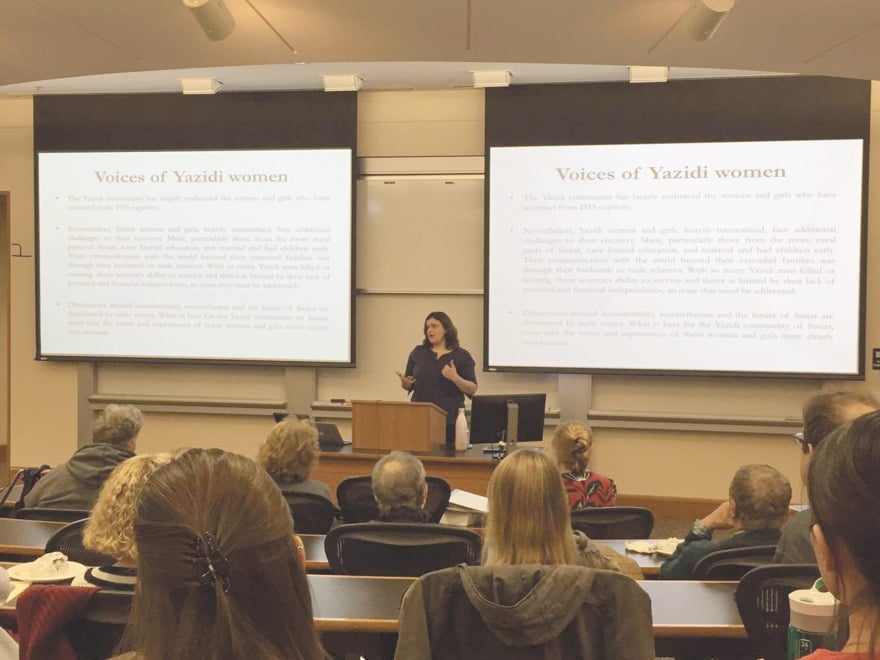Where the prosecutors labeled Sierra Leonean rebel Issa Sesay an “evil” war criminal, Stanford Law School’s new practitioner Sareta Ashraph saw a man who was indelibly shaped — though not excused — by his violent social context.
“[Sesay] was someone who had been kidnapped and forcibly recruited into the [Revolutionary United Front] when he was still in his teens,” Ashraph said. “He grew up in a dictatorial, extremely corrupt one-party state which violently oppressed any form of peaceful opposition.”

Ashraph, who served as co-counsel for Sesay in the trials following the Sierra Leone Civil War (1991-2002), joins the Stanford community for the winter quarter as the first 2016 Global Practitioner in Residence. Her extensive experience with post-conflict tribunals in the Syrian Arab Republic, Cambodia and Lebanon has informed her understanding of the extreme circumstances that can lead people to rationalize illegal behaviors during wartime.
Growing up in the twin island country of Trinidad and Tobago, Ashraph witnessed and sought to actively combat widespread violence against women. Over the years, her work began to diverge and to concentrate itself in the specific context of warfare.
“I’m interested in how people behave during war, the choices they have and the choices they make,” Ashraph said. “War strips away all the societal framework, and in such a situation, people behave in radically different ways, with some engaging in much more violent behavior.”
Ashraph brings a practitioner’s insight into the difficulties with accountability in international law, which often convicts a few people for widespread atrocity. She also commented on the problem with treating war crimes as a moral absolute.
While emphasizing that people remain responsible for their actions in war, Ashraph noted, “You really don’t learn from labeling those guilty of war crimes as ‘the worst people in the world.’ You can see that same dehumanizing language when it comes to ISIS, and no one is asking how it is that someone ends up in a situation like this.”
Since arriving at Stanford, Ashraph has been part of a dialogue on the ongoing human rights violations in Syria. Titi Liu, who serves as a director in the Law School’s John and Terry Levin Center for Public Service, noted that Ashraph’s unique background can be a source of legal and career insight for students.
“The students could benefit from talking to her, about not just her own experiences but the experiences of other colleagues who work in really serious human rights abuses and some of the worst conflict situations,” Liu said.
Liu added that Ashraph’s first-hand experience can supply practical advice about managing the intense pressures of a career in international human rights law.
Previously, the Law School had only hosted visiting scholars for 10-day periods or as part of a shorter program. Liu stated that Ashraph’s residency will allow her to serve as a mentor to students and support her research over a longer period.
For Ashraph, coming to Stanford will be a chance to take a step back from her day-to-day responsibilities as a practicing lawyer.
“[Being a practitioner in residence] allows me to continue to work on issues in Syria and Iraq while having creative time when I can research, write and talk to students,” Ashraph said. “I also want to spend more time interacting with students on a daily basis, conduct more research on gender and genocide, and decompress.”
Contact Kim Ngo at kimanh ‘at’ stanford.edu.
